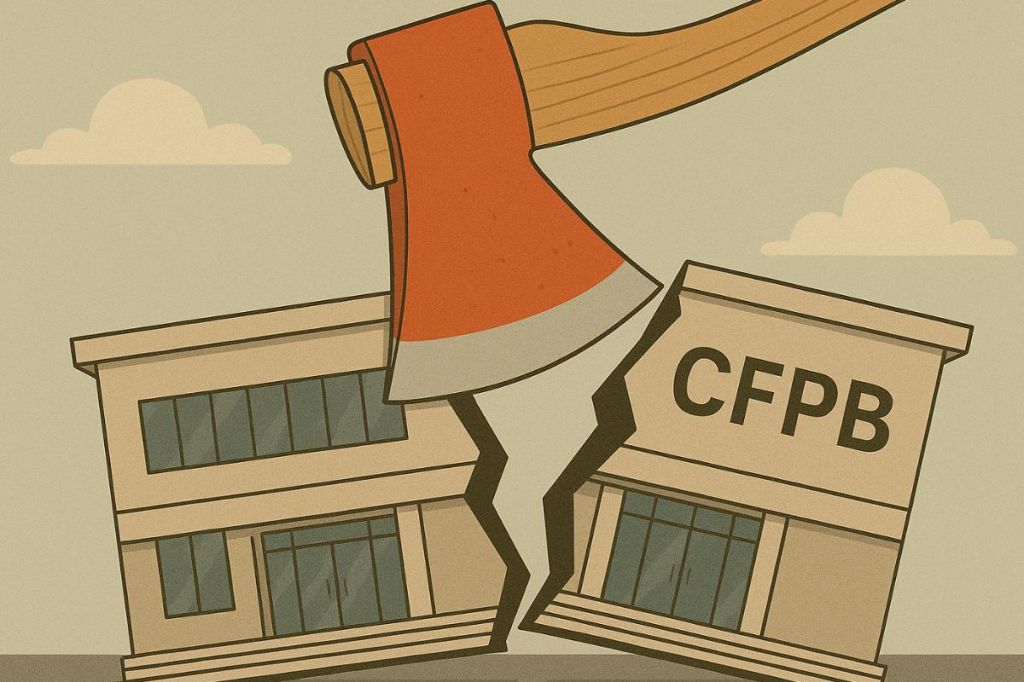The Consumer Financial Protection Bureau (CFPB) on Wednesday sent a list of rules under review to the Office of Management and Budget (OMB), including proposals that could affect mortgage lenders and servicers.
The list includes potential changes to loan originator (LO) compensation requirements and discretionary mortgage servicing rules under the Truth in Lending Act (Regulation Z; TILA), as well as servicing rules under the Real Estate Settlement Procedures Act (Regulation X; RESPA). Inside Mortgage Finance first reported on the topic.
The mortgage industry has urged the CFPB—now led by Acting Director Russell Vought—to modernize these rules but remains uncertain about what to expect from the process currently under OMB review, sources told HousingWire. No specific details have been made public yet. Representatives at the CFPB did not immediately respond to a request for clarification.
On the LO comp rule, the CFPB referred to a possible “rescission,” sparking confusion about whether the entire rule might be sunset.
Colgate Selden, a founding member of the CFPB and an attorney at SeldenLindeke LLP, said that “most agree that this rule could use some clarification,” since “when overhauling the original Federal Reserve Board version, we didn’t have time to address every possibility given the tight Dodd-Frank Act deadline.”
A key question is whether a proposed rescission by the CFPB would revert to the Federal Reserve‘s original rule or leave no rule in place. Such a move could significantly disrupt the industry. Selden pointed out that the Dodd-Frank Act loan originator compensation provisions, if adopted, could be interpreted to prohibit upfront points, fees and charges—including affiliate settlement service fees—on lender-paid mortgage transactions.
Also, mortgage brokers would not be able to charge differently for working with different lenders.
“Many more individuals and organizations could also become ‘mortgage loan originators’ subject to the Act,” Selden added. “Assuming there will be a notice-and-comment period as part of the rule rescission process, the CFPB should be fully informed of these and other possible outcomes.”
Kris Kully, a partner at Mayer Brown, said that figures in the Trump administration have characterized loan originator compensation prohibitions in TILA as a burdensome tax upon the American homeowner.
“I wouldn’t be surprised if that’s the language when we actually see what this says,” she said.
Even though the LO Comp rule does reside in the statute, there is “a lot of gloss upon just the fundamental prohibition” that the CFPB has added over the years, Kully said.
“Think about all the kind of advice that we hang our hat on related to the statement that a loan product is just a bundle of terms, and so you can’t vary compensation based on different products. A lot of our consideration over the past years has been, well, what’s a product? Does that mean that if I broker out certain products, but I originate certain products in house, then suddenly I’ve run afoul of the rule? Things like that are, I would say, are up for grabs.”
Servicing
As for servicing rules, an industry executive said that while it’s unclear how significant the changes might be—given that the rulemaking is still in its pre-rule stage—“the industry sees value in the servicing rule, at least as a way to standardize the landscape.”
Isaac Boltansky, managing director and head of public policy at Pennymac, said both Regulation X and the LO comp rules “are in need of revisions and modernization, so this is an important conversation to have.”
“But our hope is that whatever we see from the Bureau gives stakeholders the time and forum necessary to make durable changes,” he added.
Kully said that servicers have spent a lot of time and effort complying with servicing rules intertwined between Reg X and Reg Z, particularly loss mitigation components that have to be overlaid with FHA requirements. Perhaps that might be on the table, Kully said.
“It would take some thought,” she said. “I think the CFPB is ready to put some thought into that but I think that would be a harder rulemaking.”
Earlier in May, the CFPB rescinded 67 guidance documents issued since 2011, including several that affect the mortgage industry. The withdrawal is not necessarily final. While the CFPB will continue to review them, they should not be enforced in the meantime.
Some of them helped clarify regulations, but others had little impact, sources told HousingWire. For example, the CFPB issued a bulletin on loan originator compensation in 2012 as it was transitioning oversight from the Federal Reserve to its jurisdiction. However, the bulletin became ineffective as soon as the CFPB’s version of the LO Comp Rule came into effect.
Vought believes the CFPB has, in many instances, “adopted interpretations that are inconsistent with the statutory text and imposed compliance burdens on regulated parties outside of the strictures of notice-and-comment rulemaking.”







